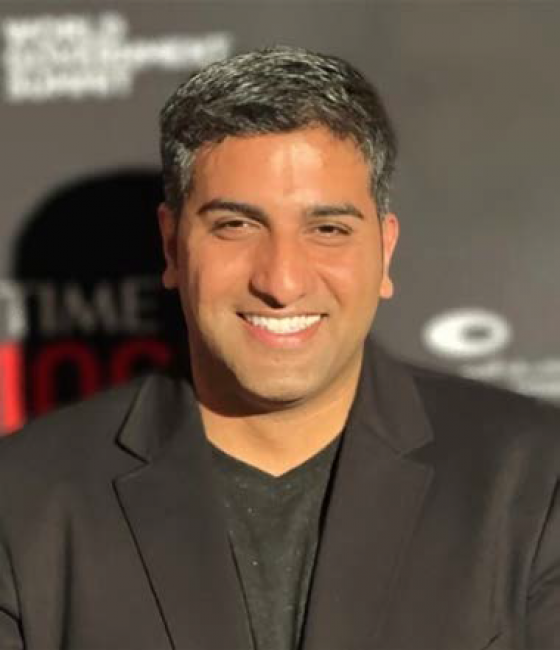ALETHEA AI, CEO & FOUNDER
“How do we reconcile the tremendous power that Generative AI models have today: models that can now replicate our intelligence and creativity with industrial-scale precision and theft of our artistic senses and aesthetic taste without any attribution to our labor? Who owns the property rights to these primitives necessary for the functioning of our society?”
What is the nature of our reality when our meatspace or digital identities can be easily stolen or cloned? What happens when the internet devolves into a hall of mirrors, and illusions are indistinguishable from the truth? How do we reconcile the tremendous power that Generative AI models have today: models that can now replicate our intelligence and creativity with industrial-scale precision, resulting in the theft of our artistic senses and aesthetic taste without any attribution to our collective labor? Who owns the property rights to these primitives necessary for the functioning of our society? How do we govern and manage such an exponential technological breakthrough and allow society to benefit from it as a whole? These are some questions that motivated the founding of Alethea, as a global substrate for Artificial Intelligence.
While I am formally trained as a philosopher, I have honed my sense-making capacity as an entrepreneur and builder. The exciting thing about being a builder as opposed to practicing armchair philosophy is that you get to birth ideas and manifest them into reality with your team. Over the past three years, we’ve built an amazing team at Alethea AI. Alethea AI is a research and development studio actively building at the intersection of two of the most transformative and innovative technologies of our time: Generative AI and Blockchain. Our mission is to use artificial intelligence and blockchain technologies to enable democratic and decentralized ownership of AI.
Why is this important? The explosion of abundance through Generative AI raises several critical questions: If machine creativity becomes abundant and consequently dominant, what happens to the value of human labor? If our aesthetic taste can be cloned, refined, and remixed without our consent, what happens to our privacy and our right to our consciousness? Do our thoughts and words hold any sacred value if a large language model can regurgitate and recreate them without needing us to generate them? In an age of machine-generated abundance, does scarcity hold any value? Does aesthetic taste, honed over years of careful, silent, contemplative observation and practice, hold any sway over algorithms that generate instantaneous and superficially superior output? Fundamentally, what does it mean to be human in an age of increasing machine-oriented dysphoria around our senses?
This attack on our sense-making capacity will require multiple solutions. Technological solutions are rarely enough for such societal-level transformations. Our humble attempt at solving this is to introduce humanity back into the equation by ensuring that the individual is honored and acknowledged in this transition and is not relegated to a mere off-chain transaction. The human must be protected through ensuring an unbreakable social (and smart) contract that enshrines the human to have frameworks that accord rights that can be enacted and protected through a permissionless and open ledger.
The AI protocol is our answer to this question. The AI Protocol is the property rights backbone of the Generative AI Economy. It provides permissionless access to Generative AI Systems and allows creators and developers to leverage new models of monetization, user acquisition, interoperability, verification, crowdsourcing, governance, provenance, and more. It brings humanity back into the equation. The permissionless and open nature of the protocol and tools like CharacterGPT that we are providing to our decentralized community of Aletheans are both revolutionary and confronting. Our community must govern the use of these tools and their generative outputs carefully as we guide ourselves to a new normal.
We believe that the democratization of AI and decentralized ownership will spur a new era of co-creative possibilities that generate meaningful abundance for both man and machine alike.

